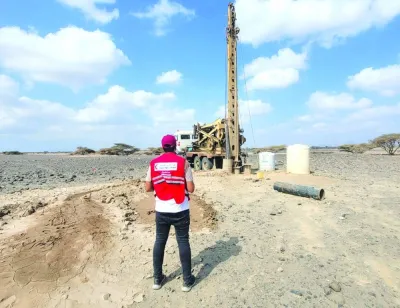Accusing India of waging “fifth-generation warfare”, Pakistan said yesterday that New Delhi had failed to inform it about the release of water from a dam that could cause flooding across the border.
India, however, rejected the claim, saying that under the terms of a water treaty between the two nations, it had informed Pakistan about the release of excess water late yesterday when it crossed a certain threshold.
Relations between the neighbours, already hostile, have been further strained over India’s decision this month to revoke the special status of its portion of the Kashmir region that both countries claim.
Pakistan reacted with fury, cutting transport and trade links and expelling India’s ambassador in retaliation.
Islamabad said the unexpected release of water into the River Sutlej that flows from India to Pakistan is part of an attempt by New Delhi to flout the longstanding treaty between the countries.
“They try to isolate diplomatically, they try to strangulate economically, they’re trying to strangulate our water resources – and water automatically will have an impact on your economy, your agriculture and your irrigation,” Muzammil Hussain, chairman of the Pakistani government’s Water and Power Development Authority (WAPDA), told Reuters.
India is using its position upstream to wage “fifth-generation warfare” on the country, he said.
India’s federal water resources ministry told Reuters late yesterday that under the treaty, advance information needs to be given in a situation when “extraordinary discharges of water from reservoirs and flood flows” could harm the other party.
No such extraordinary discharges had been observed on the Indian side.
At 1900 IST (1330 GMT), the flow of Sutlej river reached the threshold level of high flood and the same was conveyed to Pakistan, the ministry said in a statement, adding that it is committed to the treaty.
Pakistani emergency authorities are preparing for minor flooding in several areas in Punjab state as a result of the unexpected rise in water flow, though it was not clear if any had occurred.
Yesterday the National Disaster Management Authority (NDMA) warned that at least 200,000 cusecs of water from the Indian state of Punjab is expected to spill into Ganda Singh Wala, a village in Pakistan near Kasur, located at the border, over the next 24 hours.
India has also opened three out of five spillways of Ladakh Dam, which may lead to flooding in the nearby settlements, the NDMA added.
Punjab Chief Minister Usman Buzdar chaired a meeting yesterday to review the threat of flooding in Pakistan’s largest province.
In view of the flood alert, the administrations of Kasur and other districts located at the bank of River Sutlej have been advised to initiate necessary measures to tackle any emergency.
“India did not communicate the release of water to Pakistan,” Khurram Shahzed, director-general of Punjab Provincial Disaster Management Authority (PDMA), told Reuters.
India and Pakistan have long argued over water resources.
A World Bank-mediated arrangement known as the Indus Water Treaty splits the Indus River and its tributaries – which 80% of Pakistan’s irrigated agriculture depends on – between the countries.
India, which lies upstream, threatened in February to stop sharing excess water with Pakistan after a suicide bomb attack by a Pakistan-based militant group in Kashmir that killed 40 Indian paramilitary police.
Hussain said Indian Prime Minister Narendra Modi had “threatened very clearly that he could stop water to Pakistan. He couldn’t care less (for) the treaties”.
In 2016, after suspending a meeting on the Indus Water Treaty, Modi told government officials that “blood and water cannot flow together”.
India says a programme of maximising its water usage by building hydroelectric plants is in line with the treaty.

Wapda chairman Hussain gestures during an interview with Reuters at his office in Islamabad.


